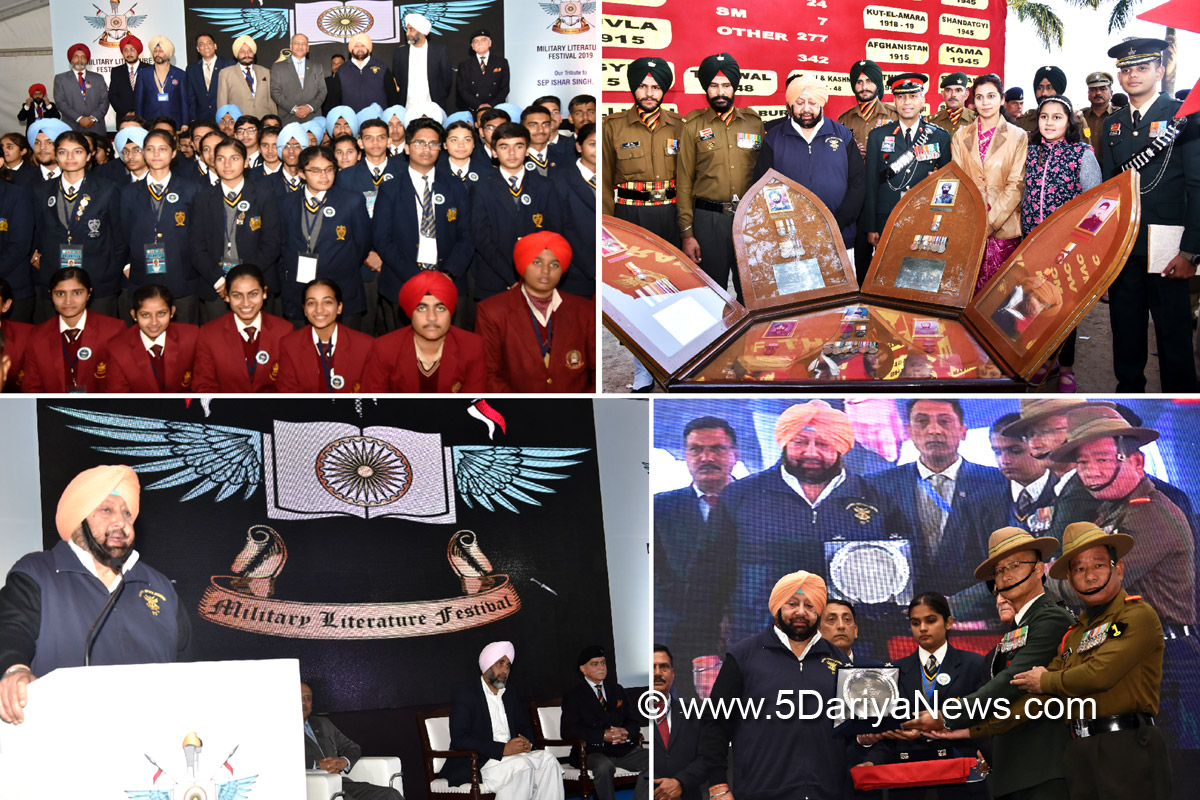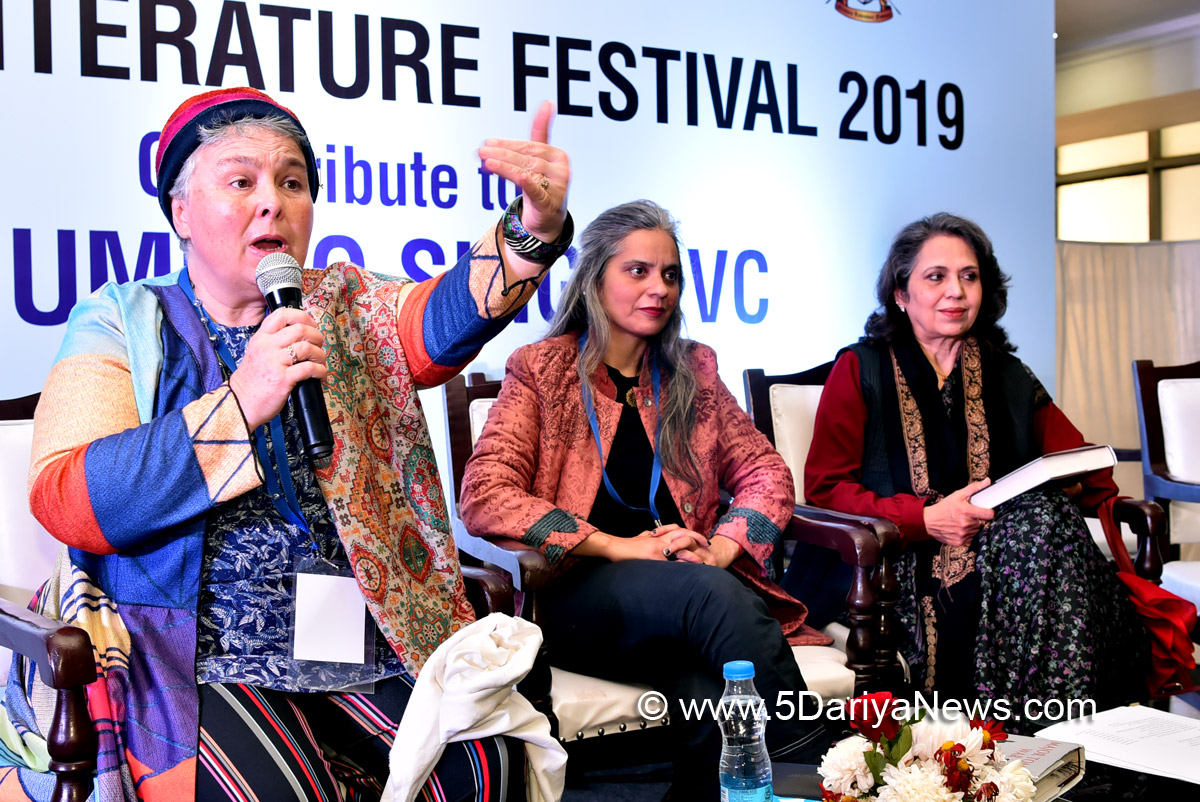
The three-day Military Literature Festival concluded here on Sunday with Punjab Chief Minister Captain Amarinder Singh honouring the units and kin of the Victoria Cross (VC) recipients from the Burma Campaign, to commemorate their gallantry in the battles fought under the British Empire till 1944.Presiding over the closing ceremony of the MLF, which commemorated the 75th anniversary of the Burma campaign, the Chief Minister also honoured Sukhjinder Kaur, the daughter of Lt Col Anant Singh, who commanded the 4Sikh battalion valiantly in the 1965 operation, which led to the capture of Burki.A former military man himself, the Chief Minister said he was privileged to bestow the honour on the units and kin of the fearless soldiers who valiantly fought during the Burma campaign, and whose memories continue to inspire Indian soldiers even today. He appreciated MLF for appreciating the sacrifice of those brave men, and said the Fest, which had just completed its third edition, would go a long way in imbuing youth with the spirit of patriotism and nationalism and motivating them to join the defence forces. It was a matter of great pride and satisfaction that several of youth from Punjab had cleared the NDA exam and were ready to don the uniform to serve the nation, he added.Major Jacob and Subedar Major Harsha Bahadur Rana from 2/5 Gorkha Rifle received the honour for Naik Agan Singh Rai (1944), Subedar Netra Bahadur Thapa (1944) and Havaldar Gaje Ghale (1943). Major Bhatendu Thakur from 2 Sikh received award for Victoria Cross winner Sepoy Ishar Singh (1921) of 28 Punjabis, which later got empaneled with 2 Sikh.
Col Navdeep Harnal from 4 Mech received the award for the VC winner Naik Nand Singh (1944) of 1/11 Sikh, now 4 Mech, while Major Mukesh from Artillery Regiment received the award for Hawaldar Umrao Singh (1944) of 30th Mountain Regiment Royal Indian Artillery, now 22 Field Regiment.Others who were honoured by the Chief Minister were Rifleman Tul Bahadur Pun, Rifleman Bhanbhagta Gurung of 3/2 GR (1945), Rifleman Ganju Lama 1/7 GR (1944), Rifleman Lachhiman Ghale 4/8 GR (1945), Lance Naik Sher Shah of 7/16 Punjab (1945), Subedar Ram Sarup Singh of 2/1 Punjab (1944), Naik Fazal Din 7/10th Baluch (1945), Prakash Singh Chib of 14/13 FF Rifles (1945), Hawaldar Prakash Singh 5/8 (1943), Naik Gyan Singh 4/15 Punjab (1944), Sepoy Bhandari Ram 16/10 Baluch (1944), Abdul Hafiz 3Jat (1944), and Lt Karamjeet Singh Judge. Punjab (1945).Earlier, during the felicitation ceremony, the Chief Minister honoured various contingents and volunteer groups from various units, institutions and schools with commendation certificates, for their outstanding contribution towards making MLF a grand success. On the occasion, the Chief Minister’s Senior Advisor and MLF Chairman Lt. Gen. T. S. Shergill said that the next edition of MLF would also focus on the 75th year of the World War-II, Burma campaign and 80th year of the WW-II with reference to German operation in Dunkirk in France. He expressed gratitude to GOC Western Command Lt Gen RP Singh, as well various wings of Chandigarh Administration, for their support and cooperation to make MLF a memorable event.The Chief Minister was accompanied by Finance Minister Manpreet Badal, as well as his Media Advisor Raveen Thukral.
















































































